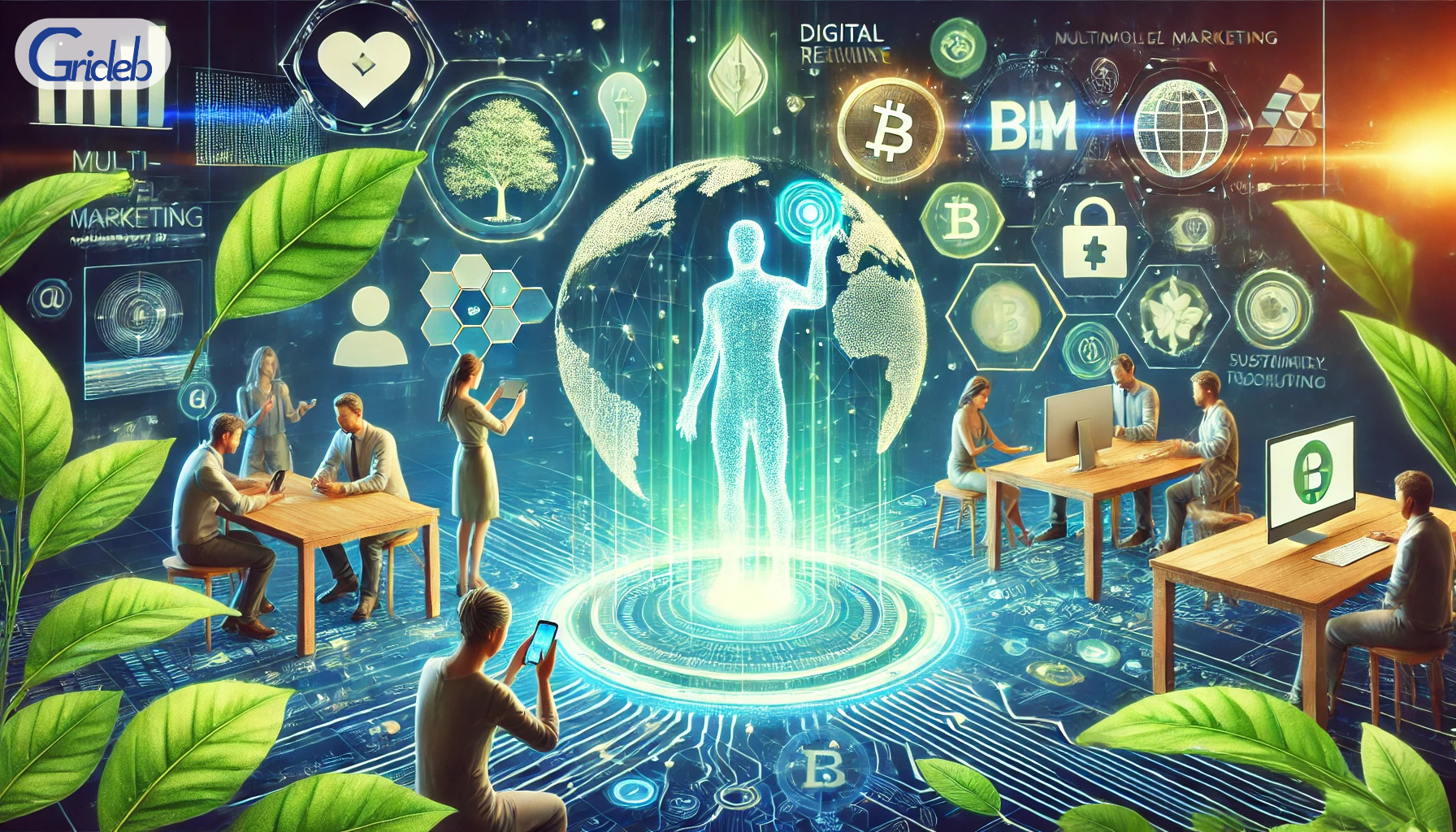MLM Reinvented: Unlocking the Future of Growth and Opportunity

MLM Reinvented: Unlocking the Future of Growth and Opportunity
The Multi-Level Marketing (MLM) industry is at a pivotal moment in its history. Long associated with in-person networking and team-building hierarchies, MLM is evolving in response to modern consumer demands. Digital transformation, sustainability, and the need for transparency are reshaping how businesses and distributors operate. As we move into 2024, the MLM industry is redefining itself to remain relevant and profitable in a fast-changing world.
The Rise of Affiliate Models: A New Chapter
One of the most striking changes in the MLM industry is the shift toward simpler, more transparent business models. A key example is Beachbody, a leading name in fitness and nutrition. Starting November 2024, the company transitioned from a traditional MLM structure to an affiliate model, focusing on rewarding direct sales instead of multi-tiered team-building. This move is expected to reduce Beachbody's operational costs by $54 million annually while making the earning process more accessible to a broader demographic. By eliminating the complexities of team management, the company aims to attract younger audiences who prefer straightforward earning opportunities and reject the stigma associated with MLM hierarchies. This shift is reflective of broader industry trends, where transparency and simplicity are becoming critical for success.
Technology-Driven Transformation
Technological innovation is revolutionizing MLM operations, offering new tools for both distributors and customers:
- Augmented Reality (AR): Companies like Mary Kay have introduced AR-powered virtual try-ons for cosmetics, making it easy for customers to test products digitally. This reduces the reliance on physical samples and streamlines the purchasing process.
- Virtual Reality (VR): Distributors are benefiting from VR-based training programs, which provide hands-on experience with product details, sales strategies, and customer engagement in an immersive environment.
- Blockchain: Many MLM firms are integrating blockchain technology to ensure supply chain transparency. This appeals to ethically conscious consumers who prioritize traceability and sustainability in their purchases.
Health and Wellness Dominate Product Lines
The health and wellness sector continues to dominate MLM sales, reflecting a broader societal focus on well-being:
- Brands like doTERRA lead the way with essential oils and wellness solutions. Personalized nutritional supplements and mental health aids, such as aromatherapy products, are increasingly popular.
- Wellness-related MLM products account for over 50% of global MLM revenues, showing the enduring appeal of this category. Post-pandemic, the demand for products that support physical and mental health has only grown stronger.
Take a Moment to Watch This Video
As you dive deeper into understanding the parallels between big events
boosting Hotstar viewership and the growth of MLMs, this video provides
a visual explanation that complements the ideas discussed here. It
breaks down key insights in an engaging way—don’t miss out!
Building Trust Through Transparency
Consumer trust is more critical than ever, and MLM companies are working hard to rebuild their reputations:
- Income Disclosure Practices: Transparent earning statements are becoming the norm. For instance, Neora's recent legal victory against the FTC underscored the importance of accurate and honest income claims in gaining public trust.
- Ethical Initiatives: Programs like Mary Kay’s women’s empowerment campaigns align MLM businesses with socially responsible practices, enhancing their appeal among modern audiences.
Sustainability as a Core Value
Sustainability has become a key differentiator for MLM companies:
- Brands like doTERRA are adopting eco-friendly packaging and ethical sourcing practices. These steps resonate with younger consumers, who place a high value on environmental responsibility.
- By prioritizing sustainability, MLM firms not only attract new distributors but also demonstrate their commitment to a better future.
Social Selling: The Power of Digital Communities
Social media has transformed how MLM distributors connect with their audience:
- Platforms like Instagram and TikTok allow distributors to engage with consumers through live-streamed events, shoppable posts, and influencer collaborations. These strategies enable distributors to tap into ready-made communities, expanding their reach and impact.
Take a Moment to Listen to This Podcast
As you dive deeper into understanding the parallels between big events
boosting Hotstar viewership and the growth of MLMs, this podcast explans
that complements the ideas discussed here. It breaks down key insights
in an engaging way—don’t miss out!
Conclusion
The MLM industry is undergoing a profound transformation, driven by technology, changing consumer preferences, and the need for transparency. Companies that embrace these trends are not only adapting to the times but are also setting themselves up for long-term success. For distributors, staying ahead of the curve means leveraging new tools, focusing on trust, and adopting ethical practices. As 2024 unfolds, the MLM industry offers countless opportunities for growth and innovation.
Are you ready to evolve with the industry? The time to adapt is now.